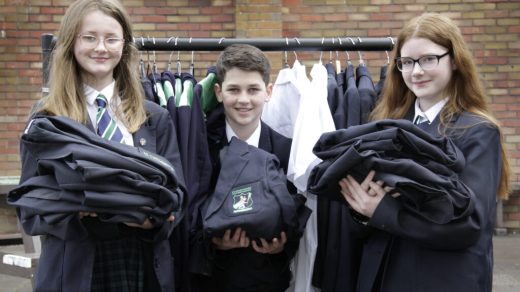Expansion of National Tutoring Programme announced

Schools will have greater flexibility to offer high-quality 15-hour tutoring courses that meet the needs of their pupils in a major expansion of the National Tutoring Programme, backed by £1 billion the government has announced.
The programme is expected to reach up to six million pupils across the country in total over the next three years with the aim to make sure students that need it receive catch up support.
The announcement states that as of today schools can sign up with this year’s external tuition providers, covering the whole country and expected to reach over 500,000 students this year. Also, academic mentors are being placed in selected schools across the country to work in small groups with over 250,000 students most in need of support this year.
As the new school year starts, 52 new free schools are opening for the first time to support continued growth in student numbers across the country.

The government believes schools and colleges are ready to welcome students back with the right balance of measures in place to minimise COVID-19 related disruption, including enhanced ventilation, regular COVID-19 testing and vaccinations of older students and staff.
Education Secretary Gavin Williamson said: “It’s fantastic to see pupils returning to schools and colleges at the start of term once again. This year we have a greater sense of normality thanks to the roll out of the vaccination programme. That extra protection helps us find that sensible balance between protecting staff and students and ensuring education is not disrupted.
“Keeping children in the classroom helps them catch up. It has given pupils real, hands-on help to support them following the disruption caused by the pandemic and we want to build on that success. So I’m delighted to be further expanding the National Tutoring Programme.
“We are boosting the tutoring that is available to pupils so that millions more can benefit from the support they provide and we see a real tutoring revolution take place in our schools.”
Teachers are also returning to the classroom with additional support for training, especially in the early years of their careers to help improve outcomes for young people. The new Early Career Framework (ECF) launches this term, providing teachers with high-quality training opportunities over the first two years after they qualify.
The government have also said they are investing £102 million in 21/22 through the 16-19 Tuition Fund to support hundreds of thousands of young people to catch up in English, maths and other vocational and academic subjects. This is in addition to the £96 million made available in 20/21 to deliver vital support for those 16-19-year-olds who needed it the most.
The three National Tutoring Programme (NTP) routes have been developed to complement one another, allowing students to potentially access up to all three areas of support at the same time.
Evidence from the Education Endowment Foundation suggests that pupils who receive one-to-one or small group tuition can make between three to five months’ additional progress. This is likely linked to pupils receiving more feedback, being more engaged and completing work tailored to their specific needs.

Students will be able to get going with tuition from the start of term, building on the 300,000 students reached by the NTP in year one, as the government has prioritised a return to the full education experience, minimising disruption from measures that were in place last year like bubbles.
Dr Susan Hopkins, COVID-19 strategic response director at PHE said: “Being in face-to-face education is the best place for children and young people, bringing with it many benefits to physical and mental health and we know that many will be looking forward to getting back to school.
“Parents, young people and teachers should feel reassured that the risk from COVID-19 for the majority of children remains low and that schools are not hubs of infection.
“It does remain vital however that we take precautions to ensure that children can return to school safely, with fewer interruptions, including regular testing and enhanced hygiene measures.
“Rapid testing is critical to help uncover hidden cases of the virus at the start of term, especially after the summer holidays.
“It’s really important that children return to school to take their first tests in-person and that they continue to test twice a week from home. This is an easy but important way to stop the spread of the virus.”



